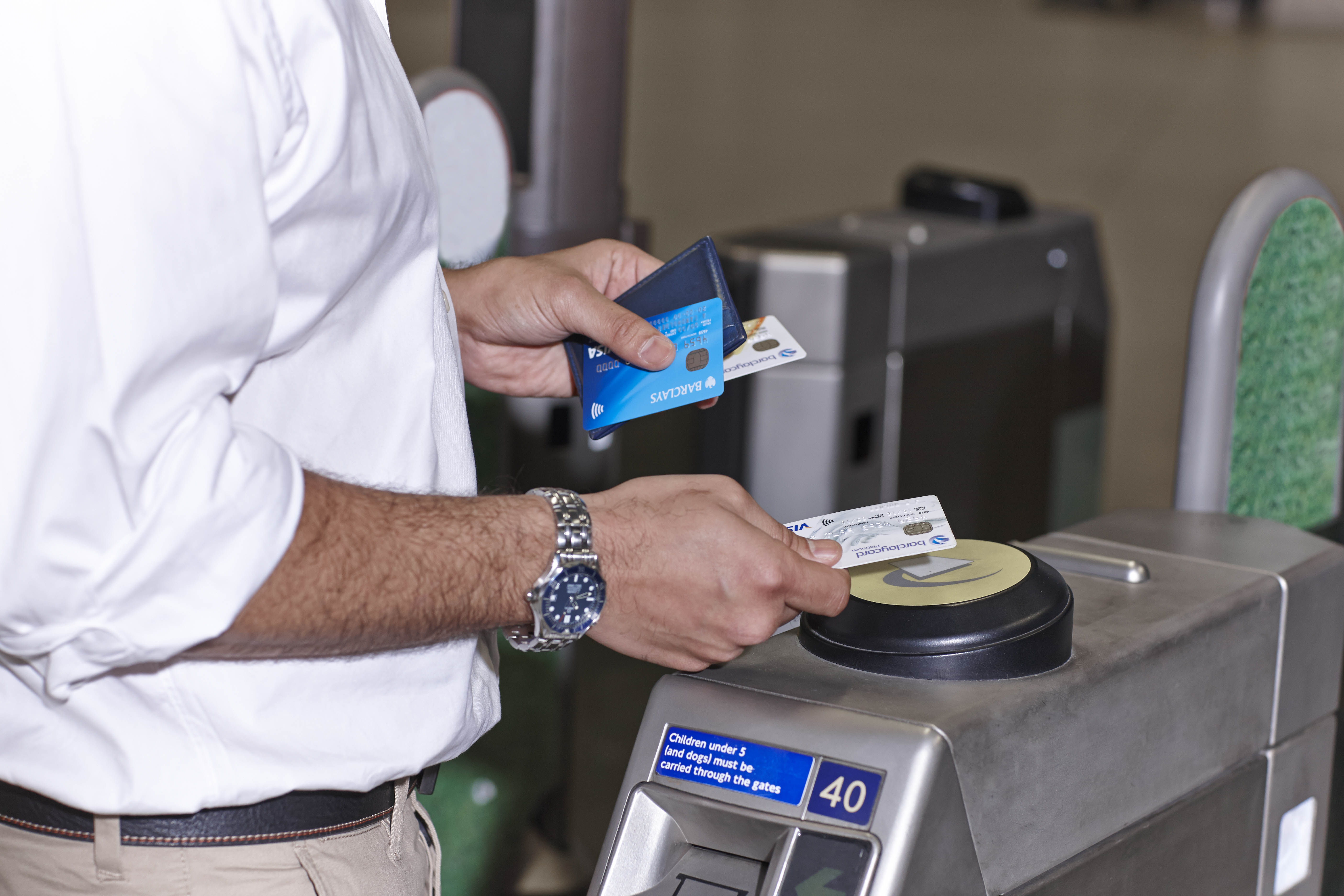

From today, passengers on the London Underground, Docklands Light Railway (DLR) and Tramlink will be able to pay for travel using a contactless card or NFC-enabled smartphone.
More than 20 million journeys have been paid for contactlessly since the technology was enabled on London buses in December 2012, paving the way for cash payments to abolished entirely earlier this year.
Transport for London (TfL) says that opening up its network to third party payment providers will make it easier and quicker for customers to travel across the capital as they will no longer need to queue up or go online to top up their Oyster balance.
This is a sentiment shared by Barclaycard, which has worked with TfL since 2006, and hopes that the development will convince more of its customers to use their cards to pay for smaller items such as sandwich and coffee.
The main difference is that buses charge a flat fare for travel whereas tube travel is charged according to distance and whether the journey is made during peak or off peak hours. In addition, there are a number of daily and weekly travelcards available, increasing the challenge of determining the correct fare.
“When you go to a regular store, let’s say Pret or EAT, to get your coffee and croissant, you know its £4,” Philip McHugh, CEO of Barclaycard Business Solutions told TechWeekEurope. “You tap and go, we do the authorisation and it clears. TfL presented a very unique challenge for us to co-solve, which is when you tap your Oyster card to get on the tube, we don’t actually know what the price is going to be because we don’t know where you’re going to travel.”
To solve this issue, passengers are only charged once a day, with ‘daily’ and ‘Monday to Sunday’ price caps used to calculate the best fare.
Card Clash is a more difficult issue to solve with technology as it is primarily a problem caused by human behaviour. For some time, TfL have been bombarding tube passengers with loud PA messages about the dangers of card clash as though it were an exotic disease, informing them to keep payment cards or smartphones and Oyster cards separate, and handing out card wallets to raise awareness.
Barclaycard is hoping that its ‘bpay’ wristband can help reduce the threat. Bpay is linked to a digital wallet that can be automatically topped up via a linked Visa or MasterCard debit or credit card and is worn on the wrist, meaning there is no need to take a card our of a wallet.
The card company estimates that half of all Londoners don’t have a contactless card, so this would be a way of not only reducing card clash, but also spreading the benefits of the technology. Barclaycard will hand out 10,000 of the devices but the system also works with digital wallets like EE’s Cash on Tap, which works with Near Field Communication technology.
McHugh believes contactless transactions will increase from £5.5 million to £2 billion this year and says the UK is ripe for expansion – although he admits that Oyster will be around for the foreseeable future.
“The most developed market for [contactless] is the UK, so we see it as a very positive trend and we’re excited to see where it goes,” he said. “It will be one of many ways for consumers to make payments and we want to help facilitate that.
“People have habits and it will take time. People take comfort in prepay, but a lot of people don’t want to stand in the queue when their Oyster card runs out.”
Contactless payments are still not possible on suburban rail routes, but McHugh sees this as inevitability and says the system could even spread to other cities and rail franchises, which will benefit from reduced costs.
Rollout of NFC payments on London’s transport network is an important milestone for the technology, but another significant development is on the horizon. Last week, Apple announced plans for its own digital wallet, Apple Pay, and Barclaycard welcomes the iPhone manufacturer’s long awaited entry into the space as it will stimulate the market.
“It’s obviously a big deal. It’s one of the biggest brands around the world announcing an entry into payments,” McHugh said. “We’re already a great partner with Apple in the US and the UK so we’re excited about this. Apple’s payment technology is contactless NFC with some very intelligent features in terms of security and trust.
“They’re promoting a contactless transaction with better speed for the merchant using traditional credit and debit cards. It will be one of many ways for consumers to make payments and we want to help facilitate that.”
Think you know your transport tech? Find out with our quiz!
American space agency prepares for testing of Boeing's Starliner, to ensure it has two space…
As UK and Europe develop closer military ties, European Commission says it will invest €1.3…
Zuckerberg seeks to revive Facebook's original spirit, as Meta launches Facebook Friends tab, so users…
Notable development for Meta, after appeal against 2021 WhatsApp privacy fine is backed by advisor…
First sign of shake-up under new CEO Lip-Bu Tan? Three Intel board members confirm they…
Trump's nominee for SEC Chairman, Paul Atkins, has pledged a “rational, coherent, and principled approach”…
View Comments
Please update the article. CPCs are also accepted on all National Rail routes which accept Oyster Pay as You Go.